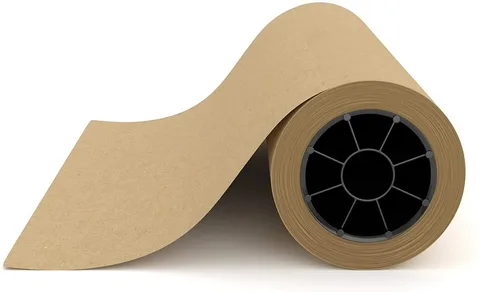Story of Ball Bearing Pakistan in Pakistan’s Engineering Marvels
When we think of engineering marvels in Pakistan, images of towering bridges, intricate machinery, and high-tech infrastructure come to mind. But there’s an unsung hero behind these marvels—something small, often overlooked, yet critical to the success of Pakistan’s industrial and engineering prowess: the ball bearing. In fact, Ball Bearing Pakistan plays a pivotal role in keeping the wheels of innovation and industry turning.
In this article, we’ll uncover the untold story of how ball bearings contribute to Pakistan’s engineering feats and why they’re integral to the country’s economic development.
What Exactly is a Ball Bearing?
Let’s start by explaining what ball bearings are. In simple terms, a ball bearings balls is a device that reduces friction between moving parts. It consists of small steel balls sandwiched between two circular metal rings (called races). These balls allow parts to move freely and smoothly while reducing wear and tear on the machinery. For Ball Bearing Pakistan, this technology is at the core of many machines and vehicles that power the nation’s industries.
The Backbone of Pakistan’s Engineering Sector
You might be surprised to learn just how vital Ball Bearing Pakistan is to the nation’s growth. These tiny components are used in a wide range of engineering projects, from large-scale construction machinery to precision tools in aerospace. Without them, Pakistan’s manufacturing, transportation, and construction sectors would grind to a halt.
Ball bearings might be small, but they are mighty! Whether it’s the smooth turning of wheels or the efficient rotation of machine parts, ball bearings ensure that Pakistan’s industries keep moving forward without unnecessary friction.
Ball Bearing Applications in Pakistan’s Infrastructure Projects
Infrastructure development is booming in Pakistan. From roadways and bridges to airports and railways, construction machinery relies heavily on ball bearings. High-performance Ball Bearing Pakistan ensures that heavy-duty machines like cranes, bulldozers, and excavators can operate efficiently. Without reliable bearings, these machines would overheat, break down, and be unable to function at full capacity.
For example, the construction of large projects such as the Lahore Metro or the China-Pakistan Economic Corridor (CPEC) has seen massive demand for ball bearings. These machines work tirelessly day and night, and without ball bearings, they’d fail under pressure.
How Ball Bearings Drive Pakistan’s Automotive Industry
Let’s take a closer look at another key player in Pakistan’s economy: the automotive sector. Ball bearings are indispensable in vehicle manufacturing, making Ball Bearing Pakistan an essential component for the automotive industry. Whether it’s cars, trucks, motorcycles, or buses, ball bearings are everywhere. They’re crucial for smooth wheel rotations, engine operations, and transmission systems.
In fact, one of the biggest contributions of Ball Bearing Pakistan is in the production of automobiles that are built to last. Without efficient bearings, vehicle components would wear out quickly, leading to frequent repairs and increased fuel consumption. Thanks to these little wonders, Pakistani-made vehicles are more durable and efficient, both on the road and in terms of cost.
Role of Ball Bearings in Power Generation
Pakistan faces significant challenges when it comes to power generation. From hydroelectric dams to wind turbines, ball bearings play a vital role in ensuring the reliability and efficiency of power generation machinery. In the case of wind turbines, for example, ball bearings allow the blades to rotate smoothly, even in extreme weather conditions. Ball Bearing Pakistan is instrumental in ensuring that power generation systems are capable of running continuously without frequent breakdowns.
Hydroelectric projects like the Tarbela Dam rely on powerful turbines that generate electricity for millions of homes. These turbines use advanced ball bearings to reduce friction and extend the lifespan of the equipment. In this way, ball bearings are helping to meet Pakistan’s growing energy needs.
The Aerospace Industry: Taking Off with Ball Bearings
Ball bearings aren’t just for land-based engineering marvels. They’re also essential in the aerospace industry, where precision and reliability are critical. Aircraft engines, landing gear, and control systems all rely on ball bearings for smooth and efficient operation. As Pakistan continues to invest in its aerospace sector, Ball Bearing Pakistan becomes even more important for ensuring safety and performance in aircraft manufacturing and maintenance.
Local Manufacturing of Ball Bearings in Pakistan
What’s remarkable about Ball Bearing Pakistan is that not all bearings are imported. There is a growing number of local manufacturers who produce high-quality ball bearings that meet international standards. This local production is vital for Pakistan’s engineering sector, as it reduces dependency on imports, lowers costs, and ensures a faster supply of bearings for local industries.
By supporting local manufacturers, the country strengthens its industrial base and ensures that critical components like ball bearings are always available for large-scale projects.
The Rise of Specialized Ball Bearings in Pakistan
As the country’s industries become more sophisticated, the demand for specialized ball bearings has also increased. From stainless steel bearings that resist corrosion to ceramic bearings that can withstand extreme temperatures, Ball Bearing Pakistan is evolving to meet the needs of more advanced engineering projects.
These specialized bearings are now being used in industries like food processing, pharmaceuticals, and electronics, where hygiene and precision are top priorities.
Environmental Impact of Ball Bearings in Pakistan
It’s not all about technology—ball bearings also contribute to environmental sustainability. Efficient Ball Bearing Pakistan products reduce energy consumption in machines, leading to less fuel use and lower carbon emissions. In industries such as manufacturing, construction, and transportation, energy-efficient ball bearings are helping Pakistan reduce its environmental footprint, all while maintaining high performance in its machines and infrastructure.
Ball Bearings and the Future of Robotics in Pakistan
One area where Ball Bearing Pakistan is seeing an exciting evolution is in robotics and automation. As Pakistan begins to embrace automation in manufacturing, robotics, and even healthcare, ball bearings will play a critical role in ensuring smooth, precise movements. Whether it’s robotic arms in factories or advanced medical robots performing surgeries, the need for reliable ball bearings is crucial for accuracy and efficiency.
Challenges Faced by Ball Bearing Manufacturers in Pakistan
While Ball Bearing Pakistan has seen tremendous growth, it also faces several challenges. The fluctuation in raw material costs, competition from international markets, and the need for constant innovation all create hurdles for local manufacturers. Staying ahead of these challenges requires investment in research and development to produce more advanced, durable, and cost-effective bearings that can compete on a global scale.
How to Choose the Right Ball Bearing Supplier in Pakistan
With so many manufacturers and suppliers in the market, how do you pick the right one? When selecting a supplier for Ball Bearing Pakistan, you should:
- Look for Quality Certifications: Suppliers who meet ISO standards ensure that their bearings are reliable and meet global performance metrics.
- Check Their Track Record: Experience matters. Suppliers with a proven history in the industry are more likely to deliver consistent quality.
- After-Sales Support: Opt for suppliers who offer maintenance and after-sales support to ensure you’re getting the best value.
- Customization Options: Depending on your industry’s needs, you may require specialized bearings. Choose a supplier who can provide custom solutions tailored to your project.
Why Ball Bearings Are Here to Stay in Pakistan’s Future
With Pakistan’s industries growing rapidly, the demand for ball bearings will only increase. From powering cars to enabling space exploration, Ball Bearing Pakistan will remain at the heart of the country’s engineering advancements. As technology continues to evolve, so too will the applications of these incredible components.
Ball bearings might be small, but their impact on Pakistan’s engineering marvels is massive. These tiny, unassuming components keep the wheels of progress turning, ensuring that everything from factories to aircraft operates smoothly and efficiently.
Conclusion
The story of Ball Bearing Pakistan is one of quiet strength. These small but vital components ensure that Pakistan’s most impressive engineering achievements—from towering skyscrapers to intricate machinery—operate without a hitch. As the country continues to grow and develop, ball bearings will play an even bigger role in supporting industries that are driving the nation forward. So, next time you witness a marvel of engineering in Pakistan, remember the tiny ball bearings working tirelessly behind the scenes to make it all possible.
FAQs
1. What industries in Pakistan rely on ball bearings?
Ball bearings are used across various industries, including automotive, construction, aerospace, power generation, and manufacturing.
2. Are ball bearings manufactured locally in Pakistan?
Yes, there are local manufacturers in Pakistan who produce high-quality ball bearings that meet international standards.
3. Why are ball bearings important in machinery?
Ball bearings reduce friction between moving parts, which extends the life of machinery and increases operational efficiency.
4. What are specialized ball bearings used for?
Specialized ball bearings, such as those made from stainless steel or ceramic, are used in industries like food processing, pharmaceuticals, and electronics, where precision and hygiene are crucial.
5. Can ball bearings help with energy efficiency?
Yes, high-quality ball bearings reduce friction, leading to less energy consumption, which can contribute to lower carbon emissions and reduced fuel costs in industrial applications.
For more information: Contact Us SBS






